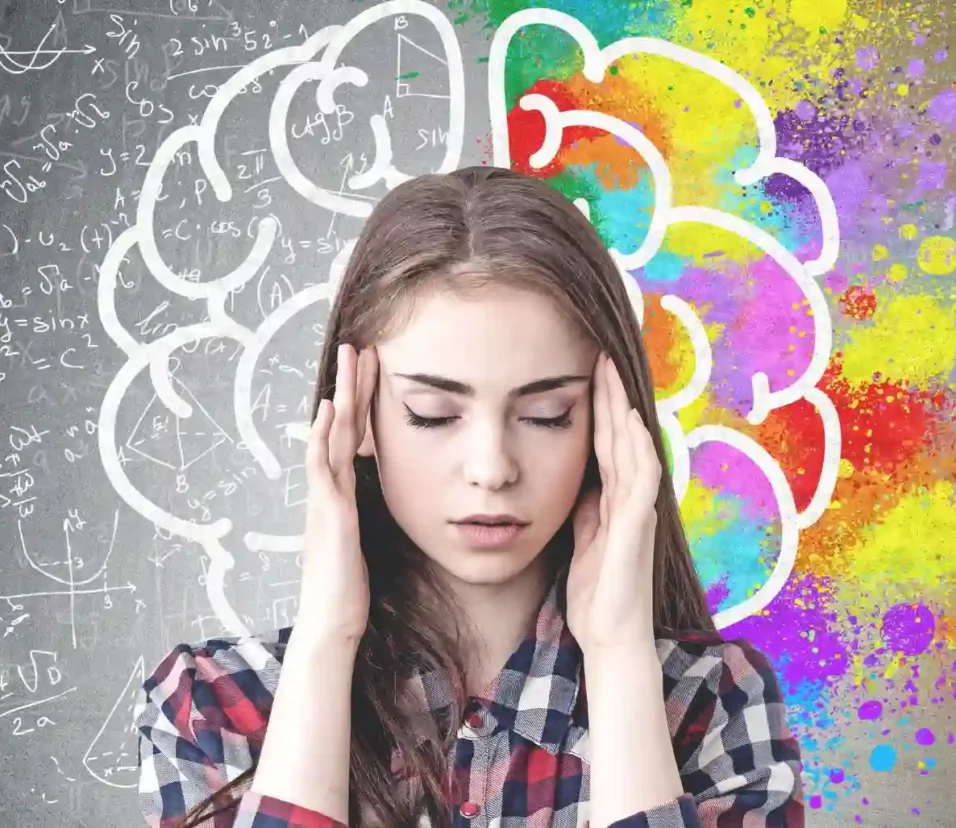What are the Effects of Alcohol on Teenage Brain Development?
During adolescence, the brain undergoes significant development, shaping an individual’s behavior, cognitive abilities, and overall personality. This stage of brain development is crucial and can be heavily influenced by external factors such as alcohol consumption. Teenage alcohol consumption is a pressing concern, with many young individuals engaging in drinking behaviors.
Understanding the effects of alcohol on teenage brain development is of paramount importance, as it can have long-lasting consequences on their health and well-being.
In this article, we will explore the effects of alcohol on teenage brain development; we will also explore the cognitive, emotional, and behavioral impacts of alcohol consumption during this critical stage of life.
Teenage Brain Development
The teenage brain is in a stage of rapid development, characterized by synaptic pruning, myelination, and the development of crucial brain regions such as the prefrontal cortex. These changes are essential for refining cognitive functions such as decision-making, impulse control, and emotional regulation.
The prefrontal cortex, responsible for executive functions, continues to develop throughout the teenage years and into early adulthood. This stage of development is crucial as it sets the foundation for future behavior, learning, and emotional regulation.
Understanding these developmental stages is vital for comprehending how external factors, such as alcohol consumption, can impact teenage brain development.
Effects of Alcohol on Teenage Brain Development
Alcohol consumption during adolescence can have detrimental effects on the developing brain. Here are some key ways in which alcohol impacts teenage brain development:
- Interference with Brain Structure: Alcohol can interfere with the development of the brain’s structure, particularly in areas responsible for learning, memory, and decision-making.
- Disruption of Neurotransmitter Function: Alcohol alters the balance of neurotransmitters in the brain, affecting communication between nerve cells and leading to changes in mood, behavior, and cognition.
- Impact on Myelination: Myelination, the process of forming a protective sheath around nerve fibers, is disrupted by alcohol, leading to impaired neural communication and cognitive function.
- Increased Vulnerability to Addiction: Teenage alcohol consumption can increase the risk of developing addiction later in life by altering the brain’s reward system and increasing susceptibility to substance abuse disorders.
- Long-Term Cognitive Impairments: Chronic alcohol consumption during adolescence can result in long-term cognitive impairments, including deficits in memory, attention, and executive function.
Cognitive Effects of Alcohol on Teenagers
Alcohol consumption during adolescence can have significant cognitive effects on teenage brain development. The developing brain is particularly vulnerable to the effects of alcohol, which can impair various cognitive functions.
- Memory Impairment: Alcohol can impair both short-term and long-term memory, affecting a teenager’s ability to learn and retain new information.
- Learning Difficulties: Chronic alcohol consumption during adolescence can lead to difficulties in learning and academic performance.
- Impaired Decision-Making: Alcohol interferes with the functioning of the prefrontal cortex, the area of the brain responsible for decision-making and impulse control, leading to poor decision-making abilities and increased risk-taking behavior.
Emotional and Behavioral Effects
Alcohol can also have profound effects on teenage emotions and behavior. The following are some of the emotional and behavioral effects of alcohol on teenagers:
- Mood Swings: Alcohol can lead to erratic changes in mood, causing teenagers to experience mood swings ranging from euphoria to depression.
- Impulsivity: Alcohol impairs judgment and impulse control, leading to impulsive behavior such as reckless driving, unprotected sex, and substance abuse.
- Risk-Taking Behavior: Teenagers under the influence of alcohol are more likely to engage in risky behaviors such as drug use, unsafe sexual practices, and violent behavior.
Understanding these emotional and behavioral effects is essential for recognizing the risks associated with teenage alcohol consumption and implementing strategies to prevent alcohol-related harm among adolescents.
Long-Term Consequences of Alcohol on Teenagers
Teenage alcohol consumption can have lasting effects on brain development, leading to several long-term consequences. Chronic alcohol abuse during adolescence can significantly increase the risk of addiction and mental health disorders later in life.
The developing brain is particularly vulnerable to the neurotoxic effects of alcohol, which can result in permanent changes to brain structure and function. Studies have shown that teenagers who engage in heavy alcohol use are more likely to develop substance abuse disorders in adulthood.
Additionally, teenage alcohol consumption is associated with an increased risk of developing mental health disorders such as depression, anxiety, and schizophrenia.
Understanding these long-term consequences is essential for raising awareness about the risks of teenage alcohol consumption and implementing preventive measures to protect adolescent brain development and mental health.
Prevention and Intervention
Preventing teenage alcohol consumption and providing early intervention and support for those struggling with alcohol abuse are essential for safeguarding teenage brain development and overall well-being.
Here are some comprehensive strategies:
1. Open Communication:
Establish open and honest communication between parents, caregivers, and teenagers about the dangers of alcohol consumption. Encourage teenagers to express their concerns and ask questions in a supportive and non-judgmental environment. Consider involving a professional doctor or counselor in these discussions to provide accurate information and guidance.
2. Set Clear Expectations and Rules:
Clearly outline expectations and rules regarding alcohol use. Make it known that underage drinking is not acceptable and discuss the potential consequences of breaking these rules. Enforce consistent consequences for violating alcohol-related rules.
3. Be a Positive Role Model:
Set a positive example by demonstrating responsible alcohol use. Parents and caregivers should model healthy behaviors and attitudes toward alcohol consumption. Avoid glamorizing or normalizing alcohol use, and emphasize the importance of making responsible choices.
4. Educate About Risks:
Provide teenagers with accurate information about the risks and consequences of alcohol consumption. Discuss the effects of alcohol on brain development, academic performance, physical health, and mental well-being. Involve a professional doctor or counselor to provide expert insight and answer any questions teenagers may have.
5. Monitor Activities:
Stay actively involved in your teenager’s life by monitoring their activities and whereabouts. Be aware of their social circle and supervise social events to ensure that alcohol is not readily available. Encourage teenagers to attend alcohol-free events and activities.
6. Encourage Healthy Coping Mechanisms:
Teach teenagers healthy ways to cope with stress, peer pressure, and difficult emotions. Encourage participation in extracurricular activities, hobbies, exercise, and spending time with supportive friends and family. If necessary, seek guidance from a professional doctor or counselor to develop effective coping strategies.
7. Create Alcohol-Free Activities:
Provide teenagers with alternative ways to have fun and socialize without the need for alcohol. Organize alcohol-free social events, gatherings, and outings. Encourage participation in activities that promote positive peer interactions and personal development.
8. Seek Professional Help:
If you suspect that your teenager is struggling with alcohol abuse, seek professional help as soon as possible. Consult a professional doctor, counselor, or addiction specialist for guidance and support. Early intervention is crucial for preventing further harm and addressing underlying issues contributing to alcohol use.
By implementing these comprehensive strategies and involving professional guidance when necessary, parents, caregivers, and communities can play a proactive role in preventing teenage alcohol consumption and providing support for those in need.
Closing Remarks
Understanding the effects of alcohol on teenage brain development is crucial for safeguarding the well-being of adolescents. Alcohol consumption during this critical stage of brain development can have significant and long-lasting consequences, including impairments in memory, learning, and decision-making abilities. Additionally, alcohol abuse during adolescence can increase the risk of addiction and mental health disorders later in life.
By educating teenagers about the risks associated with alcohol consumption, establishing clear expectations and rules, and providing support and intervention when needed, we can work together to protect teenage brain development and promote healthier outcomes for our youth.















